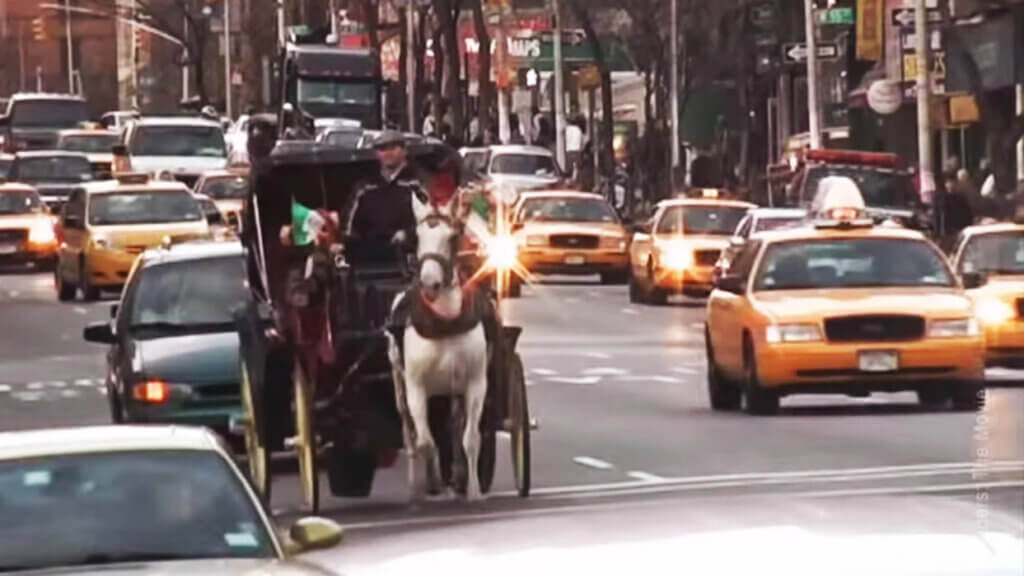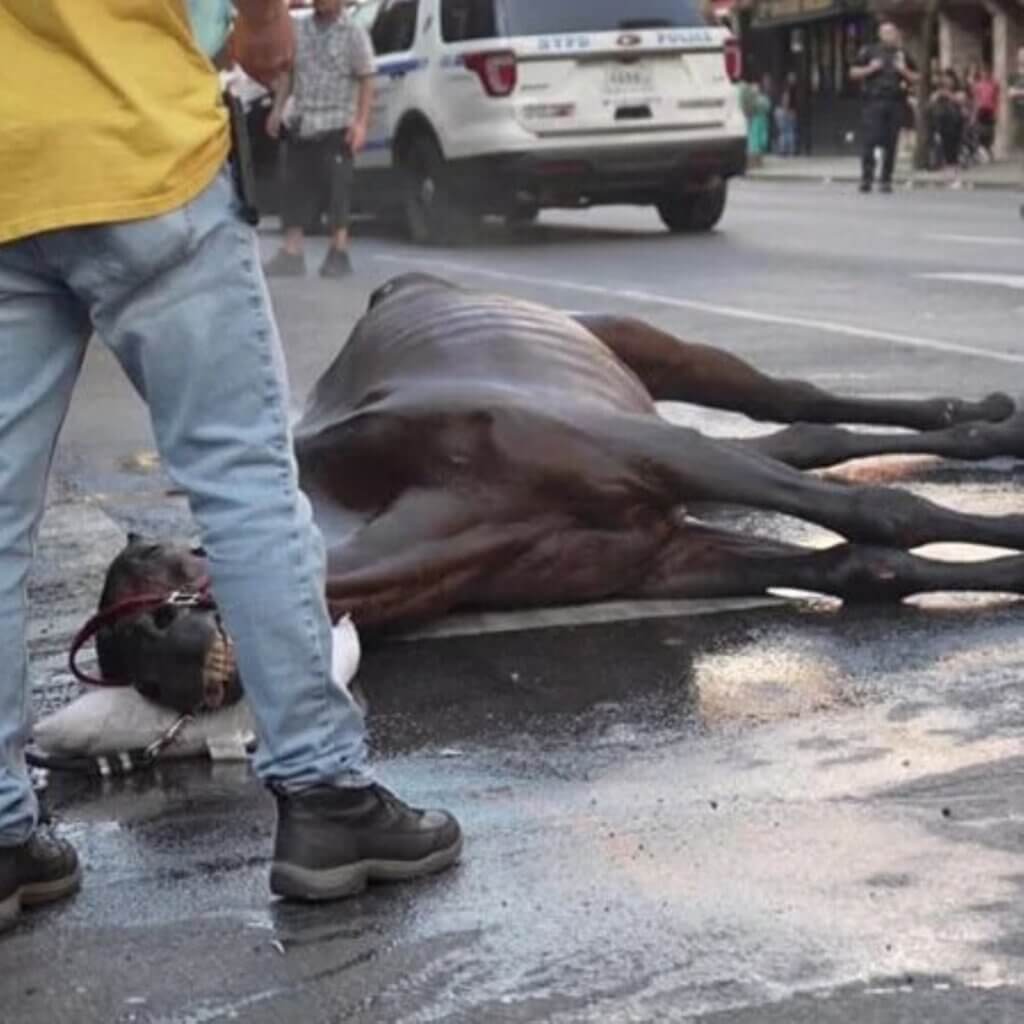Don’t Get Taken for a Ride—Horse-Drawn Carriages Are Cruel
No matter what your winter plans are, riding in a horse-drawn carriage is one activity you should avoid. 🚫 Pics of horse-drawn carriages carrying humans down city streets don’t tell the full story of the animals’ suffering.
Why Are Horse-Drawn Carriages Bad for Horses’ Health?
According to veterinarian Dr. Holly Cheever, constantly walking on hard city streets without getting proper foot maintenance causes many horses to develop infections, sole bruising, or cracks in their hoof walls. 🐴😩 Since horses walk with their heads lowered, they can also breathe in dangerous smoke and exhaust fumes from urban traffic. 🚗

The horses are exposed to bitterly cold and scorching-hot weather. In the summer, they can die from heatstroke or dehydration in just a few hours. 😢 Even though some cities ban carriage rides when the temps hit a certain level, researchers at Cornell University found that the official weather reading can be nearly 50 degrees lower than the temp of the asphalt horses are forced to walk on. 😨
Why Are Horse-Drawn Carriages Dangerous for Everyone?
Carriage operators’ claims that most horses are comfortable working among cars and trucks is cap. 🧢 There have been many accidents, injuries, and deaths—to horses and humans—after horses got spooked in traffic. Former carriage driver Angie Pheiffer says anything can startle a horse because they have “black-and-white vision and can only see two-dimensionally. To a horse, a manhole can look like a bottomless pit.” 😶
Horses are sensitive, skittish animals who bolt when startled. A 12-year-old horse named Smoothie panicked when she heard loud drumming in Central Park in New York City and darted between two poles on a sidewalk. The carriage got stuck, and she struggled to free herself until she eventually collapsed and died. 😱 In Savannah, Georgia, a carriage overturned after a horse got startled by a falling tree limb. The horse was injured, and seven people were hospitalized. 😰

Aren’t There Laws That Protect Horses?
The federal Animal Welfare Act doesn’t protect horses, and many local laws don’t do enough to keep them safe. 😒 Peep some of these lax laws:
- In Charleston, South Carolina, drivers don’t have to take horses’ temps—when it’s 85 degrees or hotter outside—until after the tour is done. 🤦
- In St. Augustine, Florida, drivers don’t have to pull horses from service until either the ambient temp reaches 95 degrees or the heat index reaches 105 degrees. 🥵
- In Philadelphia, drivers can force horses to work on public streets until the temp rises to 91 degrees or the wind chill factor falls below 26 degrees. 😑
It gets even worse—there are no laws preventing old, injured, or outworked horses from being sent to slaughter. 😡 Horses are considered property under the law, so when owners decide it doesn’t make financial sense to care for an animal who isn’t bringing in dough, those sentient beings meet a grim fate. 😭
What You Can Do
You can help horses by never going on horse-drawn carriage rides and letting your friends and fam know why they shouldn’t, either. If your city allows carriages on the streets, urge your legislators to ban them. 🗣️ Advocating for horses works—a New York Supreme Court justice ruled in favor of limiting carriage pick-up stations to inside Central Park, and the Chicago City Council voted to ban horse-drawn carriages in late 2020. These changes only happened because compassionate people spoke up, so don’t hold back. 💪
*****
Do you dream of a world in which horses and all other animals live without unnecessary suffering? Turn that dream into a reality by making a digital “dream for animals” board and posting it on your IG story!
Text peta2 to 30933 for ways to help animals, tips on compassionate living, and more!

Terms for automated texts/calls from peta2: http://peta.vg/txt. Text STOP to end, HELP for more info. Msg/data rates may apply. U.S. only.




